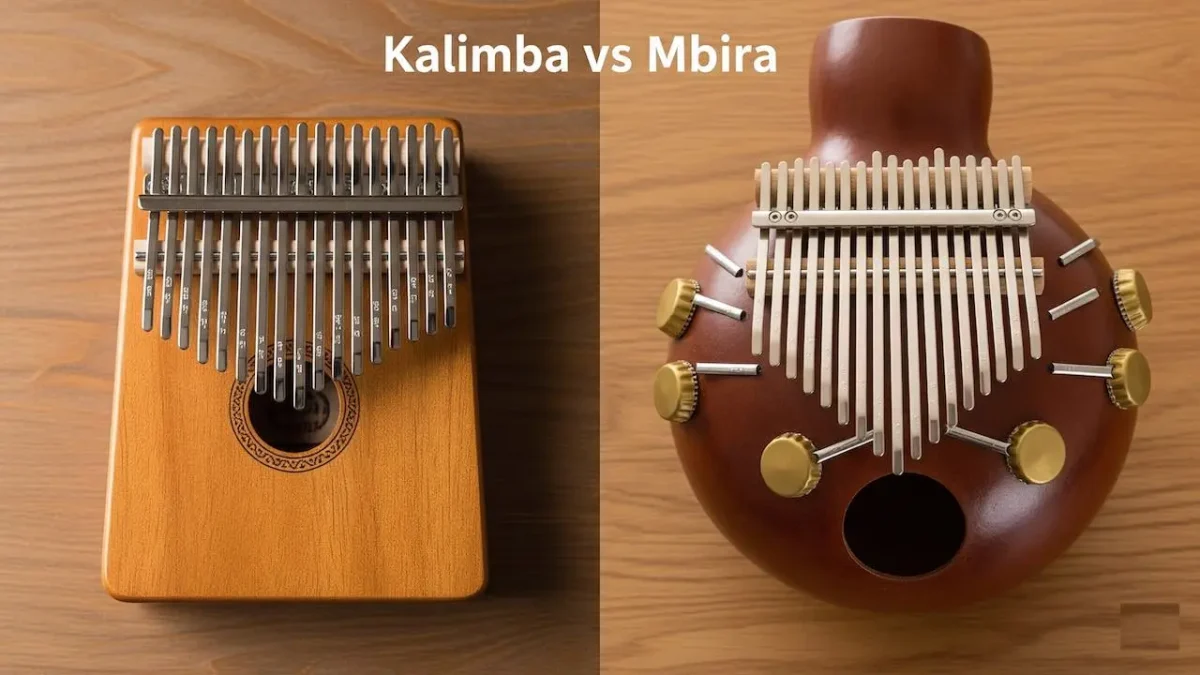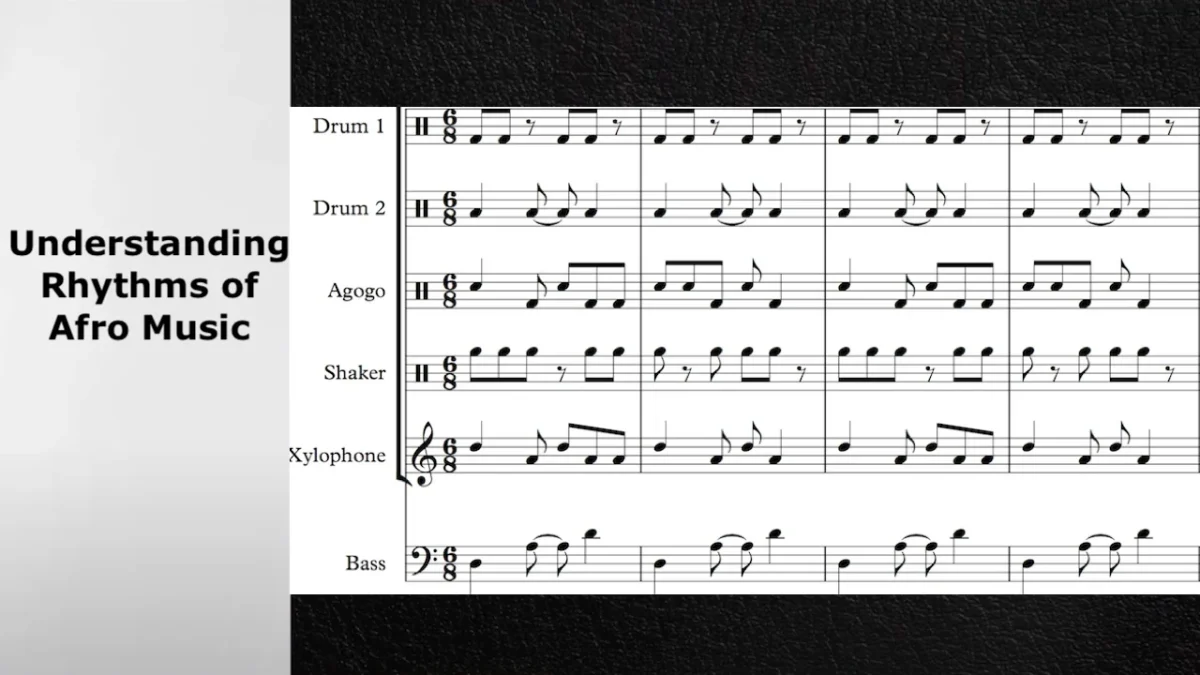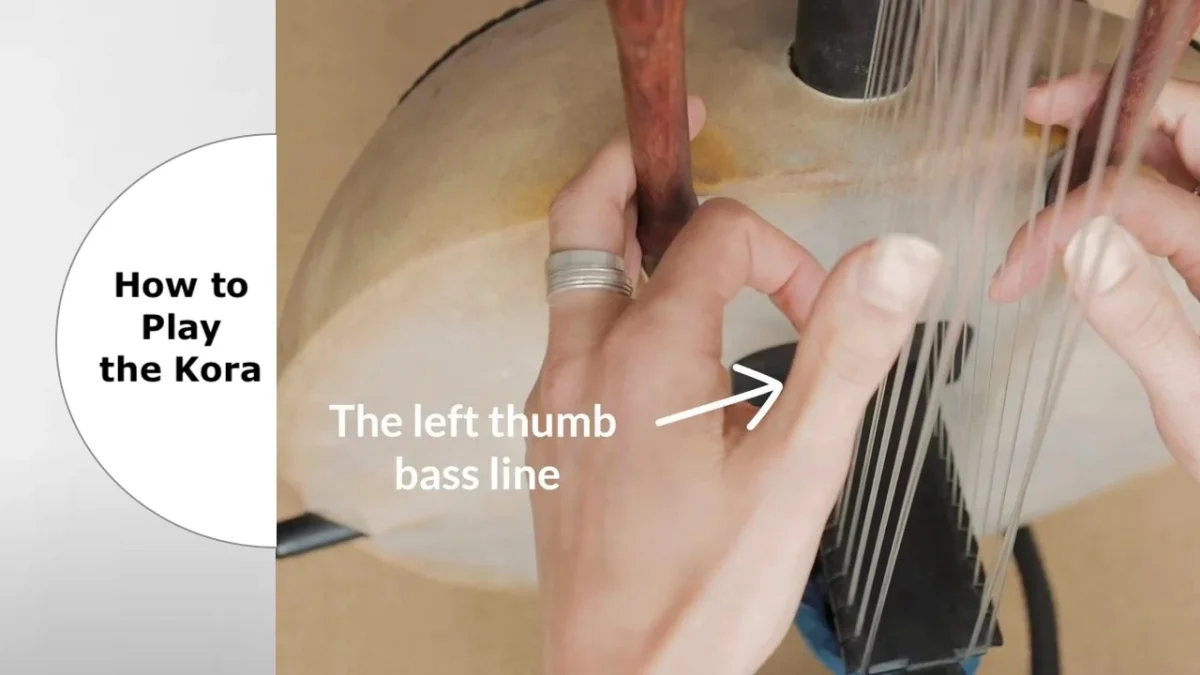
Kalimba vs Mbira: Which African Thumb Piano Should You Learn First?
Beginners might want to start with a kalimba since it is a relatively simple instrument to learn how to play. The Kalimba is generally considered more beginner-friendly, while mbira offers a more traditional African sound experience. Both instruments share similar playing techniques but differ in complexity, tuning, and cultural applications.
What Makes Kalimba and Mbira Different
Kalimba is a westernized younger version of mbira. Kalimba was created by Hugh Tracey in the 1960s after he heard traditional mbiras during his time in Zimbabwe. The main differences lie in their construction, tuning systems, and intended use.
Construction and Layout Differences
The kalimba has typically one row plus 8 or more keys attached. For mbira, on the other hand, there are two rows with 15-28 keys affixed on one end. The Mbira is typically larger, with a more complex setup of tines.
| Feature | Kalimba | Mbira |
|---|---|---|
| Number of tines | 8-17 keys | 15-28 keys |
| Layout | Single row arrangement | Two row configuration |
| Size | Compact and portable | Larger and heavier |
| Complexity | Simple design | Complex traditional setup |
Tuning and Scale Systems
Kalimba has the seven-tone diatonic scale used in traditional Western music, while the non-Western scale mbira has the same notes, but in a different order. Kalimba follows the seven-note diatonic scale which is the tradition of western music.
Because of kalimba’s diatonic scale, each combination of two notes creates a diatonic interval, making it easy to create harmony. This makes kalimba more accessible for beginners familiar with Western music theory.
Why Start With Kalimba as a Beginner
Kalimba is so easy to learn. Thus, everyone can play by themselves to pursuit inner peace. The instrument offers several advantages for newcomers to African thumb pianos.
Learning Curve and Accessibility
A kalimba with fewer tines is easier for beginners, while larger ones offer more notes for advanced players. Most kalimbas come with tablature that uses Western notation, making them accessible to people who understand basic music theory.
- Simple 8-key models perfect for absolute beginners
- Western diatonic tuning feels familiar to most learners
- Abundant online tutorials and sheet music available
- Affordable entry-level instruments widely available
Sound Quality and Musical Applications
The Kalimba produces a gentler, more melodic tone, which makes it perfect for those who want to play calming, meditative music. The sweet and soothing sound hunts for peoples’ love.
Kalimba works well for meditation, relaxation music, and simple melody playing. Popular songs can be easily adapted for kalimba due to its Western tuning system.
When to Choose Mbira Over Kalimba
Mbira is often used in traditional ceremonies and rituals. It’s also tuned to different scales depending on the region and tradition. Choose mbira when seeking authentic African musical experiences or spiritual practices.
Cultural and Spiritual Significance
Mbira carries deep spiritual meaning in African cultures, particularly among the Shona people of Zimbabwe. The instrument connects players with ancestral traditions and ceremonial practices that span centuries.
- Traditional African ceremonial instrument
- Connects players to ancestral spiritual practices
- Rich cultural heritage and storytelling traditions
- Unique buzzing sound created by bottle caps or shells
Musical Complexity and Growth
The kalimba can be a great starting point if you want to play the mbira and it seems too challenging. Even so, the principle for the two is very similar and you can easily learn the mbira in a few months.
| Aspect | Beginner Friendly | Advanced Features |
|---|---|---|
| Kalimba | Simple melodies, Western scales | Complex arrangements, multiple octaves |
| Mbira | Traditional patterns, ceremonial songs | Polyrhythmic compositions, spiritual music |
Cost and Availability Comparison
Commercially produced AMI kalimbas are also a great option. They sound beautiful, and whatever tuning you go for, there are endless musical possibilities waiting to be discovered.
Kalimbas are widely available online and in music stores, with prices ranging from $20 for basic models to $200 for professional instruments. You will often find souvenir type instruments in African markets with a few keys that look quite rustic but these instruments are seldom playable.
- Entry-level kalimbas cost $20-50
- Professional kalimbas range $100-200
- Authentic mbiras cost $150-500
- Handmade traditional mbiras require special ordering
Learning Resources and Community
If you’re lucky enough to have an authentic mbira of some kind, as well as a way to learn (YouTube is a good start), there are many online groups that you can join.
Kalimba learning resources are abundant, while mbira requires more specialized instruction. Consider your access to teachers and learning materials when choosing your first instrument.
Online Learning Platforms
Both instruments benefit from online learning communities, but kalimba has more beginner-friendly content available. Sites like mp3juice.africa offer comprehensive guides for learning to play Afro music.
Making Your Decision
Start with kalimba if you want immediate musical gratification and easier learning curve. Choose mbira if cultural authenticity and spiritual connection matter more than convenience.
Recommended Learning Path
Many successful players start with kalimba to build thumb techniques and musical understanding, then transition to mbira for deeper cultural exploration. This approach combines accessibility with authenticity.
- Begin with 10-key kalimba for basic techniques
- Practice scales and simple melodies daily
- Learn thumb independence and alternating patterns
- Explore Afra music improvisation techniques
- Consider mbira once comfortable with thumb piano basics
People Also Ask
Yes, kalimba is significantly easier for beginners due to its Western tuning system, simpler layout, and abundant learning resources. Most people can play simple melodies within hours of starting.
Some mbira songs can be adapted for kalimba, but the different tuning systems and key layouts mean many traditional pieces lose their authentic sound when transferred between instruments.
Kalimba produces gentler, more melodic tones perfect for meditation and relaxation music. While mbira has spiritual significance, its buzzing sound may be less suitable for quiet meditation.
Basic kalimba playing can be learned in weeks, while mbira typically requires months to develop proper technique. However, mastering either instrument takes years of dedicated practice.
Many players eventually own both instruments since they serve different musical purposes. Starting with kalimba provides foundation skills that transfer well to mbira learning later.
A 10-17 key kalimba offers the best balance of simplicity and musical range for beginners. Smaller 8-key models may feel limiting, while larger instruments can overwhelm newcomers.



